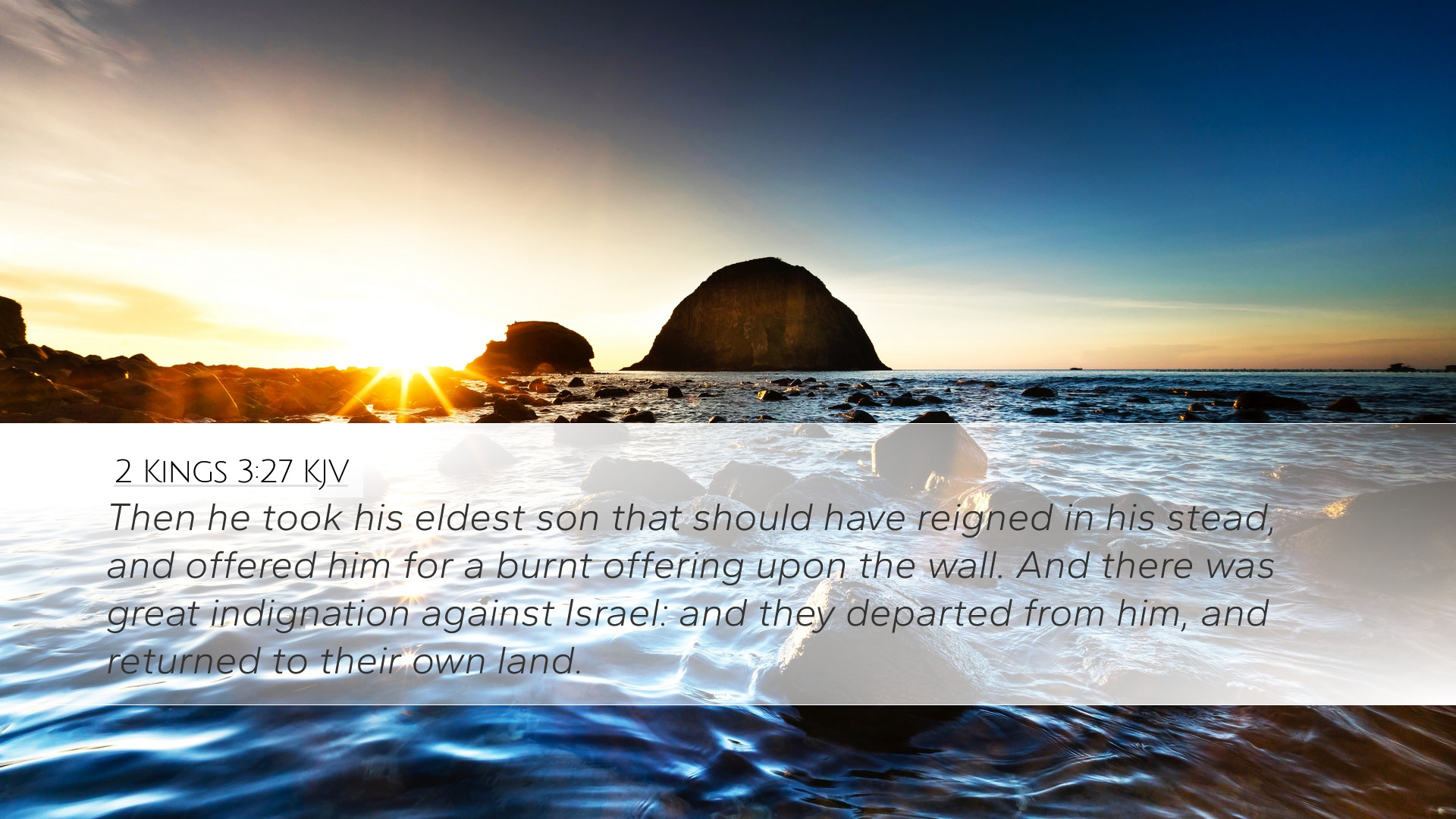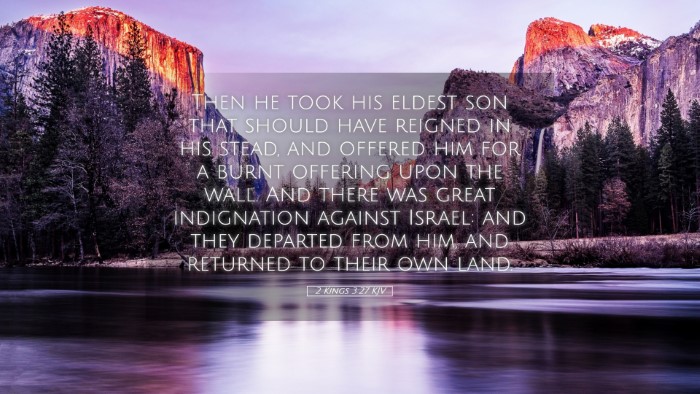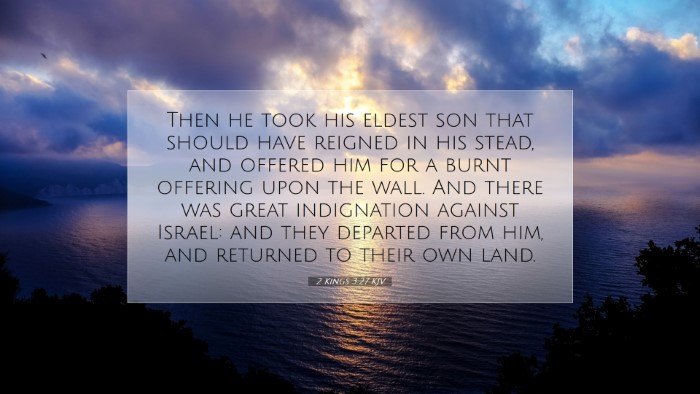Commentary on 2 Kings 3:27
The verse in focus, 2 Kings 3:27, presents a grave moment in the narrative of
the conflict between Israel and Moab. In this passage, we see King Mesha of Moab
resorting to an extreme measure in the face of imminent defeat—sacrificing his
eldest son. This act not only sheds light on the depths of desperation but also
highlights the cultural and spiritual idiosyncrasies of the time. The theological
implications of this event resonate profoundly within the broader scriptural context
and teachings.
Contextual Overview
The historical backdrop of 2 Kings 3 is vital for understanding the weight of
King Mesha’s actions. The Moabites were vassals of Israel, but following the death
of Ahab, Moab rebelled against Israelite rule. Jehoram, the king of Israel,
forming a coalition with Jehoshaphat of Judah and the king of Edom, sought to
quell this rebellion. Their campaign against Moab faces significant challenges,
leading to a desperate situation that culminates in the shocking sacrifice by Mesha.
The Desperation of King Mesha
-
Historical Context:
Mesha's act can be viewed in the context of ancient Near Eastern practices,
where child sacrifice was seen as a means to appease gods or ensure victory
in battle. Mesha believed that such an extreme act could sway his god,
Chemosh, to favor him in a time of dire need.
Albert Barnes highlights the gravity of this moment as a "desperate appeal to
the supernatural" in the face of overwhelming odds.
-
Theological Significance:
This passage serves as a critical examination of the nature of worship and
the lengths to which individuals will go in upholding their belief systems.
According to Adam Clarke, Mesha’s choice underscores the futility of relying
on false gods when faced with real power and authority.
The Reaction of Israel
The immediate reaction to Mesha's horrendous sacrifice is one of shock and dismay
among the Israelites. Matthew Henry notes that the sacrifice not only reveals the
depth of his desperation but simultaneously evokes a sense of dread and
superstition in the ranks of the Israelite army. The gruesome spectacle likely
struck fear into the hearts of the coalition forces, altering the momentum of the
battle.
The Influence of Ancient Near Eastern Practices
The practices of the surrounding nations often seeped into the lives of the Israelite
people, drawing them away from the teachings and laws of Yahweh. The Moabites, like
other ancient cultures, had a different understanding of deity and sacrifice.
Clarke emphasizes the stark contrast between the practices of Mesha and the worship of
Israel, which demanded spiritual fidelity and moral uprightness rather than violent
sacrifices.
Lessons for Modern Believers
-
The Sovereignty of God:
Mesha's act was one of ultimate desperation, reflecting a misguided belief in the
capriciousness of his god. In contrast, modern believers are reminded of the
sovereignty of God, who does not require such sacrifices. The author of Hebrews
(10:4) emphasizes that “it is impossible for the blood of bulls and goats to take
away sins,” pointing to Christ’s ultimate sacrifice.
-
Desperation and Faith:
The extremity of Mesha’s desperation serves as a warning against the distractions
that can lead us to compromise our faith. Believers today face societal pressures
that tempt them to forsake holy living for worldly gain. Henry articulates that we
must stand firm in our faith, trusting God’s provision rather than succumbing to
fear and despair.
-
Spiritual Warfare:
The events of this battle convey a larger thematic element of spiritual warfare.
The actions of Mesha can be interpreted as a demonstration of the enemy's tactics
to pursue whatever means are necessary to resist God's plans. Barnes asserts that
understanding spiritual warfare enables believers to fight against despair and
hold onto the work of Christ amid formidable trials.
Conclusion
2 Kings 3:27 serves as a powerful reminder of the seriousness of idolatry and the
acts taken in the name of desperation. It prompts readers to reflect on their own
lives, questioning the idols we might turn to in times of crisis. Scholars, pastors,
and theologians alike can draw from this rich text the lessons of faithfulness,
reliance on God, and the brutal consequences of turning away from His statutes.
In a world that often mirrors the desperation of Mesha, it is crucial for the church
to proclaim a message of hope rooted in the understanding of the true and living God,
who calls us to trust Him above all else.


